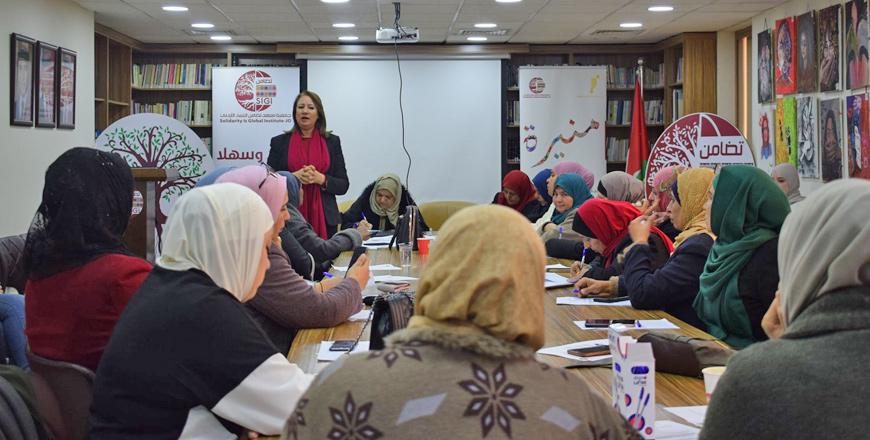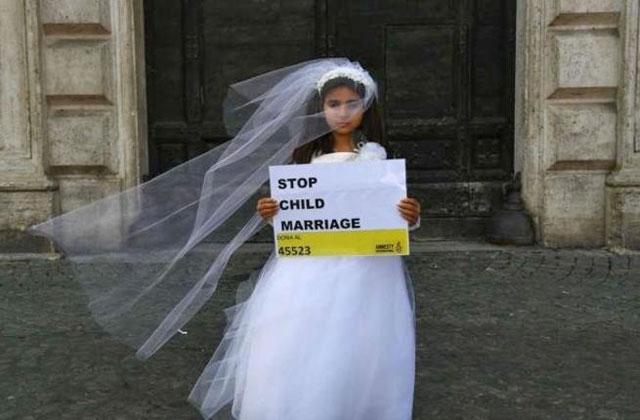You are here
Activists demand greater legal protection for women
By Rana Husseini - Jan 28,2020 - Last updated at Jan 28,2020
AMMAN — Activists and officials on Tuesday demanded greater efforts be exerted to combat early marriage and harmful practices towards women and children in Jordan.
“We need to constantly work on improving the application of the law and adopting proper procedures when the offences are related to gender-based violence,” said Criminal Court Prosecutor Judge Jihad Dureidi.
“We have witnessed some cases where women are being physically abused lightly by their husbands, then the violence increases and could result in their murder. And this is the result of the lack of proper application of the laws that protect women and children,” Dureidi, who has been a prosecutor for over 20 years, said.
The veteran judge was speaking during a monthly round-table discussion organised by Sisterhood is Global Institute (SIGI) titled “Harmful practices’ protective measures for girls and women”.
According to Dureidi, some families pressure the victims not to file a complaint against the aggressor, who is usually the husband or a male family member, which exposes the victims to dangerous situations, Dureidi added.
That is why, he added, “work should be focused on training judges and other law enforcement officials on ways to apply the law in a way to protect the victims and safeguard their well-being”.
Also speaking during the event, Director of Medical Specialties Directorate at the Ministry of Health Israa Tawalbeh said that services should be geared towards helping victims of sexual abuse.
“When we get a woman who was sexually assaulted, especially unmarried women, her family’s concern is whether or not she is still a virgin, and if she is not, they are devastated,” said Tawalbeh, who was the first woman to work as a forensic expert at the National Institute of Forensic Medicine.
“We need to provide services that focuses on the victims’ psychological well-being to help them overcome the trauma of this horrible experience,” Tawalbeh added.
Families usually ask about ways to restore their female relative’s virginity, and are not at all concerned about the mental status of the woman who was just sexually assaulted, she said.
Meanwhile, SIGI President Inam Asha focused on the problem of child marriage in Jordan, saying that she considers it “another form of sexual abuse against children”.
“I believe every girl who is under 18 and is wed by her family is forced to do so because she is young and cannot tell right from wrong, and I consider it as sexual abuse of children,” Asha told the gathering.
Asha added that early marriage results in the girls “remaining poor for the majority of their lives if they get divorced”, a common occurrence since they are usually dependent on their husbands and “unable to get the necessary life experience”.
“Jordan signed many international conventions to safeguard children’s rights, but the government is not taking serious measures to minimise early marriage, which has negative consequences on girls and society as a whole,” Asha pointed out.
She added that she considers virginity tests another form of abuse and violence practiced against women and children.
Munira Shaban, the first certified nurse to work in Zaatari Refugee Camp, shared her experience with Syrian refugee girls in 2012.
“When the refugees arrived to Jordan, many men from Jordan and abroad visited the camp to marry young girls, and their families agreed because they were desperate and needed money and wanted to take some burdens off their shoulders since they had limited resources to live on,” Shaban said.
A few months later, Shaban added, the girls are divorced and return to their families, which “creates more trouble and violence”.
However, Shaban was quick to point out that the situation has changed for the better, as “girls are marrying at an older age and are able to continue their school education”.
SIGI Executive Director Asma Khader said that Tuesday’s activity was part of the Munira Project, which is being implemented in Amman, Mafraq and Balqa with the aim of eradicating child marriage by lobbying for the abolition of the exception clause in the Personal Status Law.
“We aim to raise awareness by relaying information concerning reproductive health and child marriage via public campaigns and other activities,” said Khader, a former minister.
The project, supported by Surgir Foundation, also aims to increase respect for women’s bodily integrity by emphasising their right to make independent decisions concerning their bodies, and focusing on greater partnership between men and women in making decisions regarding marriage, reproductive health and family planning, Khader added.
“We believe that our activities will hopefully be the first steps towards amending some of the harmful practices that are being exerted mostly on women and children, which are against all religions and human rights conventions,” Khader stressed.
Related Articles
AMMAN — Solidarity is Global Institute (SIGI) on Sunday launched a national coalition to promote reproductive health rights and combat viole
AMMAN — Sisterhood is Global Institute (SIGI) on Wednesday launched a national campaign dubbed “Nujoud” to eradicate child marriage in Jorda
AMMAN — Today, thousands of girls in Jordan fall victim to early marriage, depriving them of their childhood and education, the Sisterhood i
















